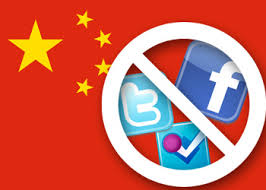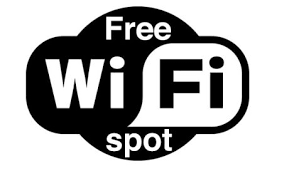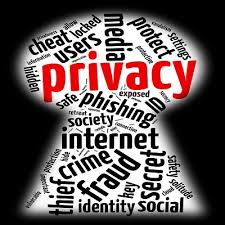The Great Firewall of China takes on VPN’s
The Great Firewall of China takes on VPN’s
The legendary Great Firewall of China is a thorn in the side of any businessman or tourist wishing to get online when within the borders of what is a fascinating and commercially important country. Created by the government to block access to content deemed subversive or unsuitable for Chinese nationals, it has long troubled users wishing to use Google, Facebook, YouTube and more, although those with a little inside knowledge have been able to bypass restrictions by installing and using a Virtual Private Network, or VPN like HideMyAss Pro! VPN…
Cracking Down on VPN’s
 The Chinese authorities have been aware of the growing popularity of VPN’s for some time, and have recently launched an initiative to crack down on their use. Although not illegal, they are frowned upon by the powers that be in China, and some users have found they were no longer able to access popular Western sites using their service. However, some services – notably Hotspot Shield among them, which is one of the more popular services – have reported that they have not been blocked. Quite why is unknown, although experts have discovered some interesting factors regarding the blocking methods being used.
The Chinese authorities have been aware of the growing popularity of VPN’s for some time, and have recently launched an initiative to crack down on their use. Although not illegal, they are frowned upon by the powers that be in China, and some users have found they were no longer able to access popular Western sites using their service. However, some services – notably Hotspot Shield among them, which is one of the more popular services – have reported that they have not been blocked. Quite why is unknown, although experts have discovered some interesting factors regarding the blocking methods being used.
OpenVPN Protocol
It has been discovered that the Chinese may be a step behind in their censorship technology, as it is believed they are blocking sites that use the less sophisticated OpenVPN protocol. This is as opposed to L2TP and PPTP protocols, which are more up to date, and services that use the above two can still be accessed within China. For business users, and personal users, being able to circumnavigate the firewall when in China makes things a lot easier, and it remains to be seen whether the Chinese will be willing to open their doors to such commercially beneficial aspects of the internet.
Boom in Business
What is interesting is that, thanks to the media coverage of China’s latest censorship exploits, interest in VPN technology has rocketed, with the main players in the market reporting a notable increase in users in recent weeks. The publicity given to the situation has in turn acted as publicity for the product, and the resulting demand is a welcome boost for the industry. If you need to use a VPN in China look or one using the more sophisticated protocol, and make sure you choose a server in the likes of Hong Kong, the USA or Europe for more chance of connection.

 A VPN, or Virtual Private Network, is a way of accessing the internet that allows you to enhance your privacy while browsing and also to bypass geographical and copyright restrictions. How does it do so? It’s a simple yet innovative idea: generally, restrictions are imposed by location. When you access a website you do so via a series of servers; these are in various locations, and they identify where you are in the world. In some countries, China for example, the government apply restrictions on the content that can and cannot be viewed. By using a VPN like
A VPN, or Virtual Private Network, is a way of accessing the internet that allows you to enhance your privacy while browsing and also to bypass geographical and copyright restrictions. How does it do so? It’s a simple yet innovative idea: generally, restrictions are imposed by location. When you access a website you do so via a series of servers; these are in various locations, and they identify where you are in the world. In some countries, China for example, the government apply restrictions on the content that can and cannot be viewed. By using a VPN like  You may be wondering how these restrictions work: quite simply, when you log onto the internet you are given an identifying number unique to you. This number tells the servers, machines that transfer information from one to another, who you are, where you are, and what you are trying to access. If they detect that you are trying to access information that is restricted where you are, the server will block it. You can overcome this by using a
You may be wondering how these restrictions work: quite simply, when you log onto the internet you are given an identifying number unique to you. This number tells the servers, machines that transfer information from one to another, who you are, where you are, and what you are trying to access. If they detect that you are trying to access information that is restricted where you are, the server will block it. You can overcome this by using a  The fact the hotspot is unsecured means that it is easy for everyone to access; everyone, it should be remembered, includes those who are less than honourable in their intentions. You may bank online, or shop using a credit card, and if you do then you need this information to be kept safe and secure. On an unsecured network it is quite possible for people in the know to steal this information, and your security could be compromised. The best way to protect yourself against such actions is to use a virtual private network, or VPN; this is a service that, rather than transferring information via the dedicated server the hotspot uses, has its own servers in a range of locations that you can choose to use.
The fact the hotspot is unsecured means that it is easy for everyone to access; everyone, it should be remembered, includes those who are less than honourable in their intentions. You may bank online, or shop using a credit card, and if you do then you need this information to be kept safe and secure. On an unsecured network it is quite possible for people in the know to steal this information, and your security could be compromised. The best way to protect yourself against such actions is to use a virtual private network, or VPN; this is a service that, rather than transferring information via the dedicated server the hotspot uses, has its own servers in a range of locations that you can choose to use. It’s all too easy to adopt the ‘it won’t happen to me’ attitude; most likely it won’t, but what would happen if somebody did manage to gain unauthorised access to your private and sensitive online information? Think about what is on there: no doubt you have bank account and credit card details online; your address and contact information will be on there; your date of birth and further information – all of this can be of interest and use to persons who want to take advantage of your online identity.
It’s all too easy to adopt the ‘it won’t happen to me’ attitude; most likely it won’t, but what would happen if somebody did manage to gain unauthorised access to your private and sensitive online information? Think about what is on there: no doubt you have bank account and credit card details online; your address and contact information will be on there; your date of birth and further information – all of this can be of interest and use to persons who want to take advantage of your online identity. The internet is heavily censored within China thanks to the famous ‘Great Firewall’, a government initiative aimed at halting the use of various chat forums and websites by political subversives who post anti-government comments. They also choose to censor content that they believe to be unsuitable for Chinese nationals, and this can mean that visitors to the country, whether for business or pleasure, can be troublesome. Even giants such as Google have fallen foul of the strict internet restrictions, and visitors will find that streaming sites such as Netflix are heavily censored. However, there is something you can do to get around the Great Firewall, although it may take a little trial and error: invest in a virtual private network or
The internet is heavily censored within China thanks to the famous ‘Great Firewall’, a government initiative aimed at halting the use of various chat forums and websites by political subversives who post anti-government comments. They also choose to censor content that they believe to be unsuitable for Chinese nationals, and this can mean that visitors to the country, whether for business or pleasure, can be troublesome. Even giants such as Google have fallen foul of the strict internet restrictions, and visitors will find that streaming sites such as Netflix are heavily censored. However, there is something you can do to get around the Great Firewall, although it may take a little trial and error: invest in a virtual private network or  Take a moment to think about this question: how much personal information do you share online? We’re not talking only about information you pass to others about your name, address, and other information, but about data that you may share across the internet without a second thought. For example, how often do you shop online? When you do you will undoubtedly use a payment method, perhaps your bank account or a merchant account. Are you certain this is absolutely secure?
Take a moment to think about this question: how much personal information do you share online? We’re not talking only about information you pass to others about your name, address, and other information, but about data that you may share across the internet without a second thought. For example, how often do you shop online? When you do you will undoubtedly use a payment method, perhaps your bank account or a merchant account. Are you certain this is absolutely secure? While there is little that can be done to prevent a DoS attack, there is plenty that both commercial entities and individuals can to do ensure their online security is up to date and as strong as can be. One of the best methods of giving yourself the greatest level of online security is to use a virtual private network, or VPN. The benefits of a VPN are many: first, it enables you to overcome any geo-restrictions that may be in place in certain countries, but perhaps more importantly, a VPN helps protect your online identity and the information you send across the internet.
While there is little that can be done to prevent a DoS attack, there is plenty that both commercial entities and individuals can to do ensure their online security is up to date and as strong as can be. One of the best methods of giving yourself the greatest level of online security is to use a virtual private network, or VPN. The benefits of a VPN are many: first, it enables you to overcome any geo-restrictions that may be in place in certain countries, but perhaps more importantly, a VPN helps protect your online identity and the information you send across the internet.